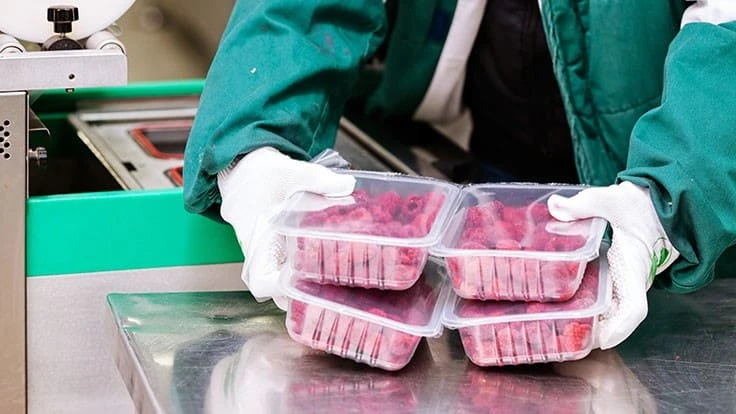
Photo courtesy of Dreamstime
London-based Plastic Energy Ltd., Freepoint Eco-Systems LLC of Stamford, Connecticut, and Paris-based energy company TotalEnergies have formed a partnership to build an advanced recycling plant in Texas. The plant will turn end-of-life plastic scrap into a recycled feedstock called TACOIL, which is a patented product from Plastic Energy. TotalEnergies will convert this raw material into virgin-quality polymers, which can be used to make food-grade packaging.
According to a joint news release on the partnership, the project will process and convert 33,000 tons of postconsumer end-of-life plastic scrap annually. The plant is expected to become operational by 2024. TACOIL will be used to manufacture polymers in TotalEnergies’ Texas-based production unit to help create items such as flexible and rigid food packaging containers.
“We are delighted to announce Plastic Energy’s first project in the U.S., which is a region that has enormous potential for the plastic-to-plastic advanced recycling market,” says Carlos Monreal, founder and CEO of Plastic Energy. “Using our patented and innovative technology, this new advanced recycling plant in the U.S. will be able to treat postconsumer waste that would otherwise be incinerated, landfilled or end up polluting the environment.”
Plastic Energy, Freepoint Eco-Systems and TotalEnergies say they are committed to developing plastics recycling to build a more circular and sustainable economy. In 2020, TotalEnergies and Plastic Energy announced a joint venture to build a plastic waste conversion facility with a capacity of 15,000 tons annually at the TotalEnergies Grandpuits zero-crude platform in France. That project is expected to be operational in early 2023.
“Freepoint Eco-Systems is thrilled to partner with these two like-minded firms to reduce plastic disposed of in landfills and to increase the recycling of plastic that heretofore has been challenging to recycle,” says Jeff McMahon, managing director of Freepoint. “The Texas project will reduce the need for fossil feedstocks, which results in carbon left in the ground, a more sustainable economy and a healthier planet.”
Latest from Recycling Today
- BMW Group, Encory launch 'direct recycling’ of batteries
- Loom Carbon, RTI International partner to scale textile recycling technology
- Goodwill Industries of West Michigan, American Glass Mosaics partner to divert glass from landfill
- CARI forms federal advocacy partnership
- Monthly packaging papers shipments down in November
- STEEL Act aims to enhance trade enforcement to prevent dumping of steel in the US
- San Francisco schools introduce compostable lunch trays
- Aduro graduates from Shell GameChanger program





